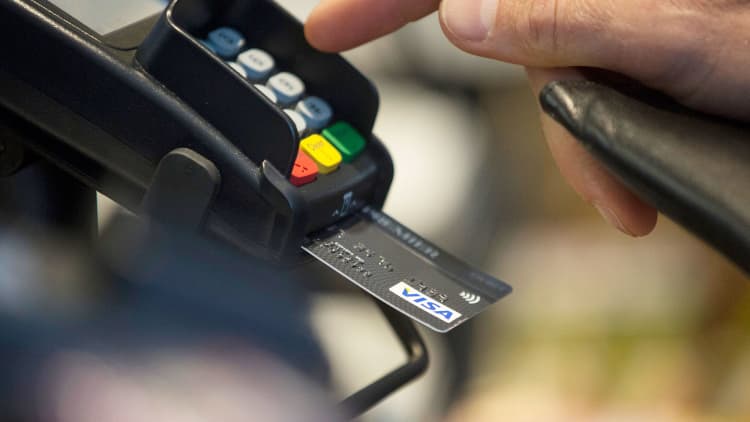
One of the biggest threats facing retirees' finances is not that they've saved too little — it's that they owe too much.
While the average credit-card debt among all U.S. households is about $5,700, that number jumps to $6,351 for those age 65 and over (soaring to $6,876 for recent retirees between ages 65 and 69, compared with just $5,638 for those 75 and up).
A retiree's credit-card debt on average is more than double the maximum monthly Social Security payment.
So it's not surprising that a report by the National Council on Aging found credit-card debt is a huge financial concern for seniors, right behind medical bills and just ahead of paying for utilities.
If you're feeling weighed down by credit-card bills, here are three simple ways to get that balance under control while saving some money in the process.
1. Tackle high interest first. You always want to pay off your highest-interest debt first. Rank the credit cards you use to figure out which is charging you the highest interest and pay that balance off.
Even if you only have one credit card, take a careful look at your statement because you may have different interest rates depending on how you used it. Say you requested a balance transfer, got cash back and also made purchases; you may have three different outstanding balances for each transaction, each with a different rate.
In this scenario, it makes sense to pay more than the minimum amount due on the card if you can. While the minimum payment amount will go to your lowest-interest debt, any money above that amount will automatically go to your higher-rate balances, helping you to pay down that debt faster.
If you are constantly incurring fees for overdraft protection, then it's time to rethink how you use the card, and possibly switch to another.Ken Linfounder and CEO of CreditKarma.com
2. Beware of fees. The easiest fee to control — and get rid of — is a late fee. It's your responsibility to know when the billing cycle ends and to pay on time. If you have trouble remembering the due date, set up autopay, whereby payments are automatically deducted from your bank account.
If you do incur a late fee but have been paying on time for years, call your credit-card issuer and ask for a "good faith adjustment," said Ken Lin, founder and CEO of CreditKarma.com, a website that researches and recommends credit cards, loans and insurance based on a user's credit profile.
"If you are constantly incurring fees for overdraft protection, then it's time to rethink how you use the card, and possibly switch to another."
3. Earn and burn. When it comes to credit-card rewards, once you rack up enough points to get the perk you want, don't wait. Reward offers can change so if you want to get the biggest bang for your buck then cash in those rewards as soon you have enough.
Once you get your debt under control, pay off any new balances in full each month.
Following this rule of thumb will keep revolving high-interest credit-card debt from accumulating and help you better manage your spending — so that you can retire well.






